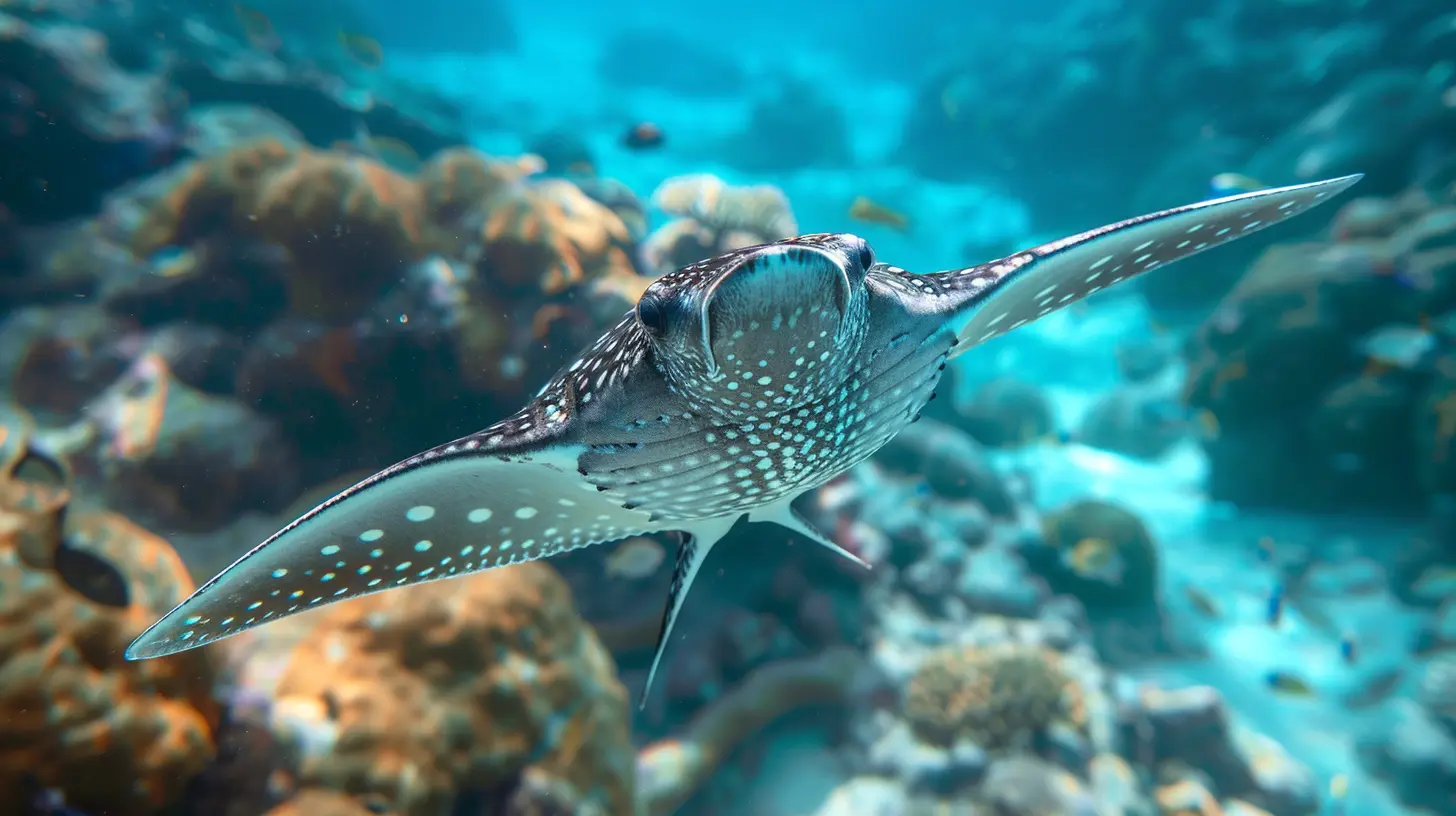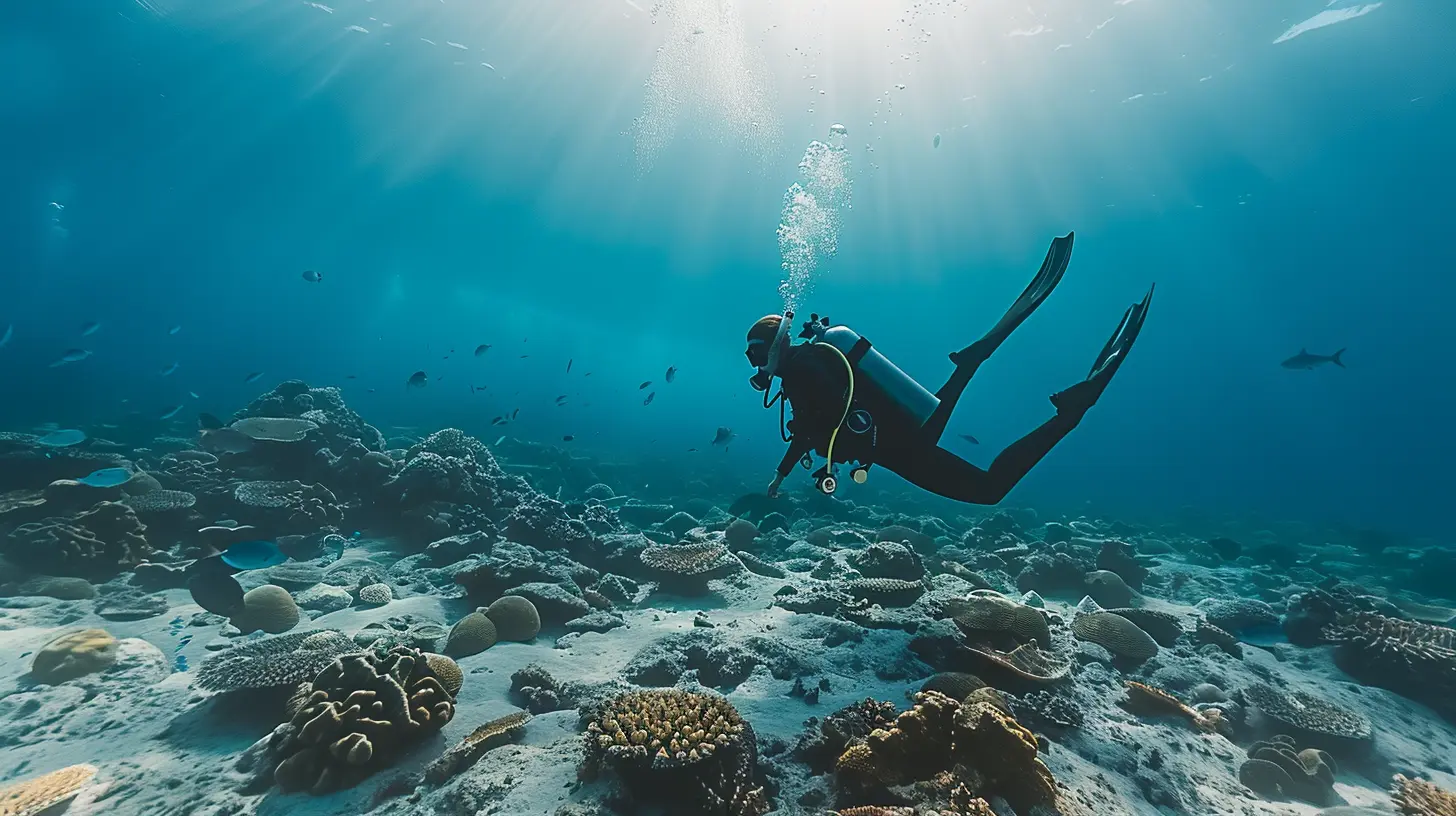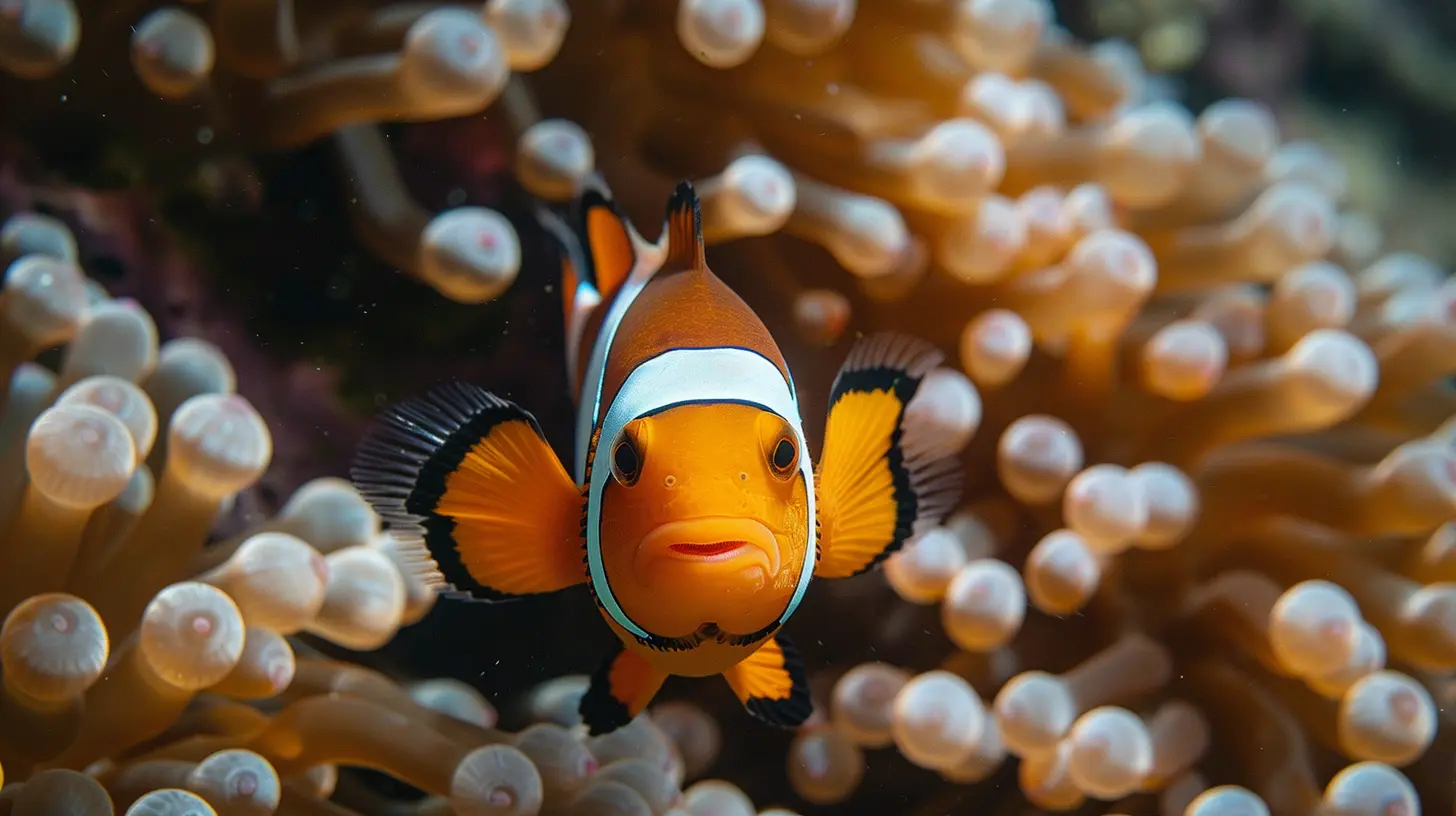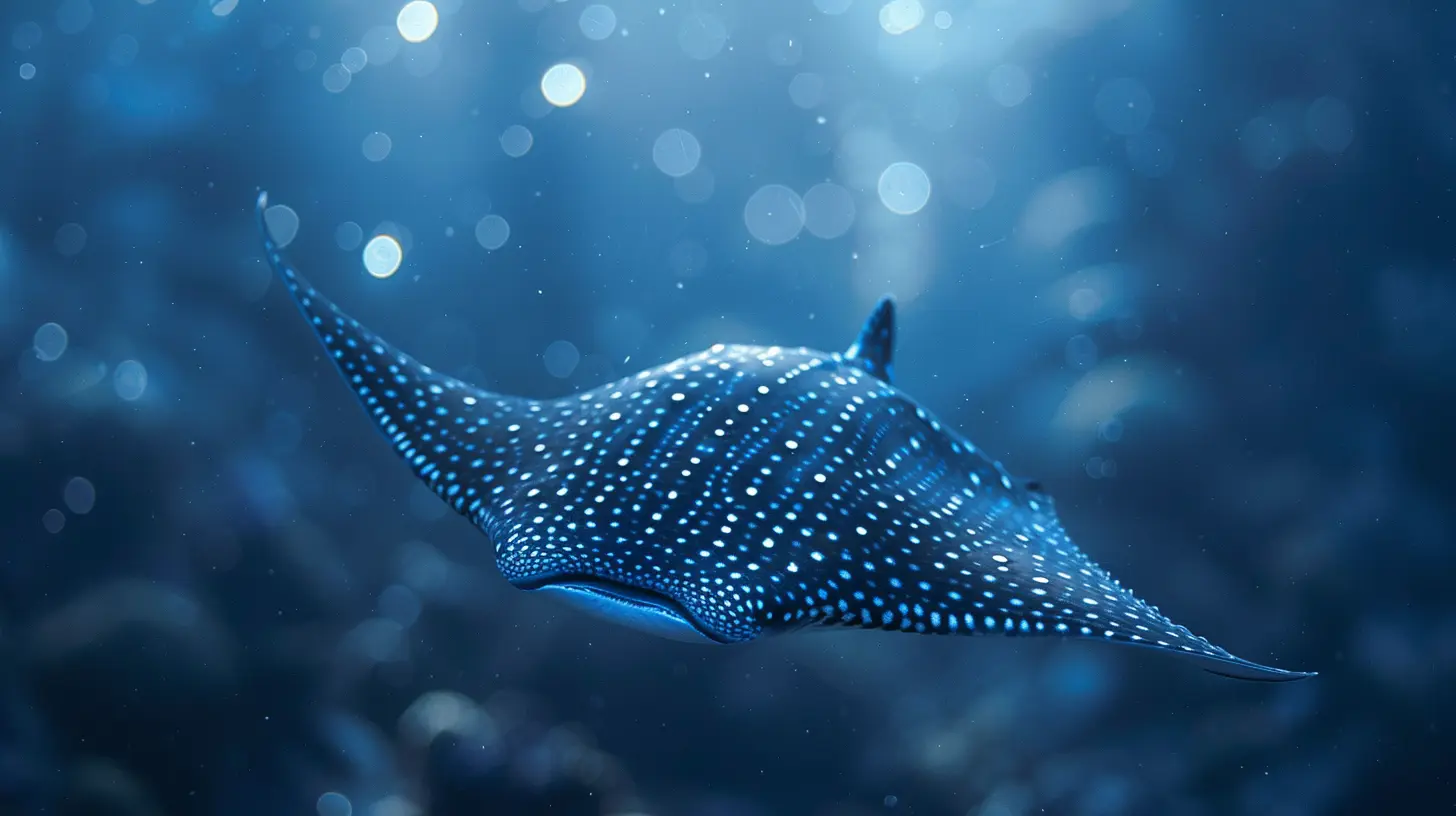How to Support Marine Conservation Through Responsible Diving Trips
29 August 2025
The ocean is a whole other world—a mysterious realm filled with vibrant corals, graceful sea turtles, playful dolphins, and intricate ecosystems we’ve barely scratched the surface of understanding. If you're a scuba diver or someone excited to join the underwater tribe, you probably already know how magical it feels to float weightless among the sea creatures. But here’s the thing—our beautiful oceans are in serious trouble.
From coral bleaching and plastic pollution to overfishing and rising ocean temperatures, our oceans could use a helping hand. And as divers, we’re in a unique position to make a real difference. Not just by talking about marine conservation, but by actually supporting it through the choices we make while diving.
Let’s dive into how you can support marine conservation through responsible diving trips and ensure that the underwater world stays as stunning and alive as the first time you saw it.
Why Marine Conservation Matters More Than Ever
If you’ve ever seen a coral reef up close, you know it’s anything but lifeless rock. It’s a bustling city of color and movement—a critical habitat for thousands of marine species. But many reefs are dying. In fact, scientists estimate over half of the world’s coral reefs have been lost in the past few decades. Yikes, right?Marine ecosystems are crucial not only for marine life but for us too. They regulate climate, produce oxygen, and provide food security for hundreds of millions of people. So, if the ocean suffers, we all feel it. Supporting marine conservation isn’t just about saving Nemo—it’s about protecting the base of life on Earth.
What Is Responsible Diving?
Let’s get one thing straight—diving itself isn’t the issue. It’s how we choose to dive that makes the difference.Responsible diving is all about minimizing your impact on the marine environment and contributing positively wherever possible. It means respecting marine life, avoiding damage to fragile ecosystems, and understanding how your behavior affects the ocean. It’s diving with your eyes wide open and your conscience fully engaged.
1. Choose Eco-Friendly Dive Operators
Not all dive shops are created equal. Some care deeply about the marine environment; others are just cashing in on tourism.When picking a dive operator, here’s what to look out for:
- Green Certifications: Look for operators certified by organizations like Green Fins, PADI AWARE, or Reef Check. These groups hold dive centers to high environmental standards.
- Local Involvement: Are they working with local marine parks or conservation groups? Are they hiring local guides and supporting the community?
- Education-First Approach: A responsible dive shop will take time to brief you properly—not just about dive safety but about marine life etiquette too.
A good rule of thumb? If the operator doesn't seem to care about protecting the ocean, then they're probably not helping it.
2. Respect Marine Life and Habitats
Think of the ocean as someone else's home—because it literally is. When you’re diving, you’re a guest in someone’s living room.So be respectful:
- Keep Your Distance: Don’t touch or chase animals. As tempting as it might be to high-five a sea turtle, resist the urge.
- No Touching the Coral: Even a slight brush can kill coral polyps. And kicking up sediment with your fins? That’s like throwing dust in someone’s face.
- No Feeding Wildlife: It messes with natural behaviors and can make animals aggressive or dependent on humans.
Basically, look but don’t touch. Observe like a silent nature documentarian, not a clumsy tourist on a sightseeing rampage.
3. Improve Your Buoyancy Control
This one is huge.Poor buoyancy control is one of the biggest threats divers pose to coral reefs. One accidental fin kick can wipe out decades of coral growth.
To avoid unintended damage:
- Practice in Pools or Quieter Sites: Before diving on fragile reefs, get your buoyancy dialed in at easier dive sites.
- Take a Peak Performance Buoyancy Course: Many dive schools offer this short course to help divers improve their control underwater—worth every penny.
- Use a Pointer Stick (responsibly!): Some underwater photographers use them to stabilize without touching coral. But don’t poke or prod—ever.
Floating effortlessly without flailing around? That’s the superhero skill every ocean advocate needs.
4. Avoid Single-Use Plastics on Your Trip
Plastic pollution is a nightmare for marine life. Whales swallow bags thinking they’re jellyfish, turtles suffocate, and corals get smothered.While traveling and diving, try these plastic-free swaps:
- Bring a reusable water bottle and say no to plastic bottles whenever you can.
- Carry reusable bags, utensils, and a foldable container for takeout food.
- Say no to plastic straws and to-go cups—bring your own instead.
Small changes, big impact. Plus, going plastic-free often saves you money in the long run.
5. Participate in Citizen Science Opportunities
Want to be part of something bigger than just your own dive log? Citizen science lets you contribute to real research.Many dive organizations and marine parks offer programs like:
- Fish and Coral Surveys: Help identify species and report what you see.
- Reef Health Monitoring: Assist in judging reef vitality or spotting signs of bleaching.
- Marine Debris Removal: Some dives are focused on cleaning up trash from the sea floor.
You don’t need to be a marine biologist to help—you just need curiosity and a willingness to care.
6. Support Marine Protected Areas (MPAs)
Marine Protected Areas are like national parks, but underwater. They’re vital sanctuaries for struggling marine ecosystems.When traveling:
- Choose destinations that include sustainable MPAs.
- Pay your park fees cheerfully—that money often goes back into conservation funding.
- Follow all rules and guidelines while in protected waters. These areas have stricter policies for a reason.
By diving in MPAs and following the rules, you’re voting with your wallet for a future where the oceans thrive.
7. Share What You’re Learning
One of the most powerful tools we have? Our voice.You don’t have to be an influencer with thousands of followers to make an impact. Share your own experiences, photos, and conservation stories on social media, blogs, or just over dinner with your non-diving friends.
Talk about:
- What you saw during your dives
- What you learned about marine life
- Why conservation is important to you
- How others can help out too
The more we normalize ocean-friendly travel, the more people will jump on board.
8. Offset Your Carbon Footprint
Let’s be honest—traveling (especially flying) has an environmental cost. But you can lessen your impact by:- Offsetting your emissions with credible carbon offset programs.
- Flying less frequently, but staying longer at each destination.
- Choosing eco-lodges and green-certified accommodations at your dive destination.
We can’t all ditch planes overnight, but we can fly smarter.
9. Take a Marine Conservation Course
Want to take things to the next level?A marine conservation course offers hands-on learning about how oceans work and how we can protect them. Courses range from weekend workshops to in-depth dive school programs. Some even include research dives where you help collect data for marine scientists.
Look into programs by:
- PADI AWARE Foundation
- Reef Check
- Coral Restoration Foundation
It’s like summer camp for ocean lovers—with purpose.
10. Advocate for Ocean Policies Back Home
Marine conservation doesn’t end when your vacation does.No matter where you live, your actions affect the ocean. Support political leaders and movements that prioritize climate action, plastic regulations, and marine protection. Attend beach clean-ups. Educate your local community.
Because no matter how far you are from the coastline, your choices ripple outward.
Responsible Diving Isn’t About Perfection
Let’s be real. We all mess up sometimes. Maybe you forgot your reusable water bottle. Maybe you brushed a piece of coral while adjusting your mask.The goal isn’t perfection—it’s awareness.
Once you know better, you can do better. Every thoughtful choice you make underwater helps create a ripple effect of positive impact. And trust me, the ocean notices.
Final Thoughts
Scuba diving gives us front-row seats to the incredible marvels of the ocean. But with that privilege comes responsibility. By choosing responsible dive operators, respecting marine ecosystems, reducing our waste, and getting involved in conservation efforts, we can be true ocean stewards.So the next time you gear up for a dive trip, remember—you’re not just exploring the underwater world. You’re playing a role in protecting it.
And that’s pretty amazing.
all images in this post were generated using AI tools
Category:
Eco TravelAuthor:

Kelly Hall
Discussion
rate this article
1 comments
Lorelei Ward
Embrace the ocean's wonders responsibly; every dive can be a step toward protecting our fragile marine ecosystems.
September 2, 2025 at 3:46 PM

Kelly Hall
Thank you for highlighting the importance of responsible diving! Every step we take can indeed make a difference in preserving our oceans.


